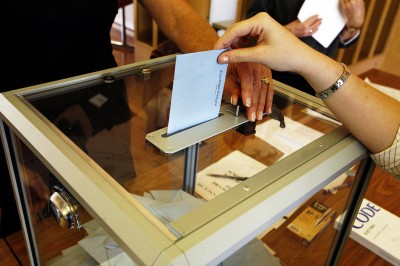Over the last few years, the subject of lowering the voting age at local government elections has been one of the most common political topics among young people in Estonia. This year, Estonian National Youth Council and political youth organizations have put their backs together and turned political approach to the Estonian Ministry of Justice and to the Estonian Parliament.
The case for lowering the voting age is determined by demographic changes, whereby the youth has less and less political weight, especially when compared to the electorate above 60 years of age. It thus triggers a state where political parties set their primary focus on improving the conditions of older generations, while the issues that could change the future the most might be side-lined. The right to vote as a political instrument, to change one’s life, has to be at the hands of the largest section of society possible.
In the spring of 2014 the “Analysis of the impact of lowering the voting age“ was published by Tallinn University. The research has shown that by lowering the voting age, 24 000 people would get the right to vote and that the potential group is interested in politics at least as much as grown-ups. Interesting is the fact that among 14-year-olds even 50 percent of questioned had chosen an ideology to follow and the distribution between different parties did not differ much from grown-ups.
The first European country to lower the voting age for all elections was Austria in 2007, although at some cantons of the country, voting at 16 had been available 7 years earlier. If a few years back it was possible to be a little sceptical about the decision, then now the experience gained is showing that it was a totally right step. Interest in politics among young people in Austria has risen two-fold, when compared to 2004. Surprisingly, the turnout of 16- and 17-year-olds standing at 60%, is even higher than the turnout of 40% for those only a decade older. Statistics break the myth that lowering the voting age creates a habit of not turning up at elections; rather it is a catalyst that helps to enforce election attendance as a positive habit. The difference between the activity of pupils and school graduates can be explained by the fact that youth that are still in education are more likely to be in touch with public activity. Besides Austria, the voting age has been lowered in Norway in 2011 and in Britain during the Scottish independence referendum this year, where the youth were the most active participants. Futhermore, voting age will be lowered in Malta in 2015, as well as Croatia and Slovenia if the youth go to work and in many states of Germany.
In Estonia, fast urbanization is a pretty important political issue. I am convinced that lowering the voting age will help to ease the problem. Currently a large number of young people move to cities after finishing high-school. In many cases their family and childhood home are the only memories that remain and also the only incentives to return to smaller cities or villages. Unfortunately, only a small number of graduates will move back to the place they were born in. Primarily, young people will choose to stay in places where it is possible to feel as part of a system of community, where they feel as valued members of society. Considering the fact it is vital to integrate young people to decison-making as early as possible, lowering the voting age is a clear sign: „You are a full member of our community, you can decide what the future of your home-ground is going to be“. It is clear that everything new needs time to sink in and be absorbed by people, but once we get used to things, they become hard to live without. Just as an example, in Switzerland, women did not have the right to vote until 1971 and although that sounds weird now, at the time it was not even clear if the law will be passed.
Take a glance and you’ll see, we need to give this generation a chance.




